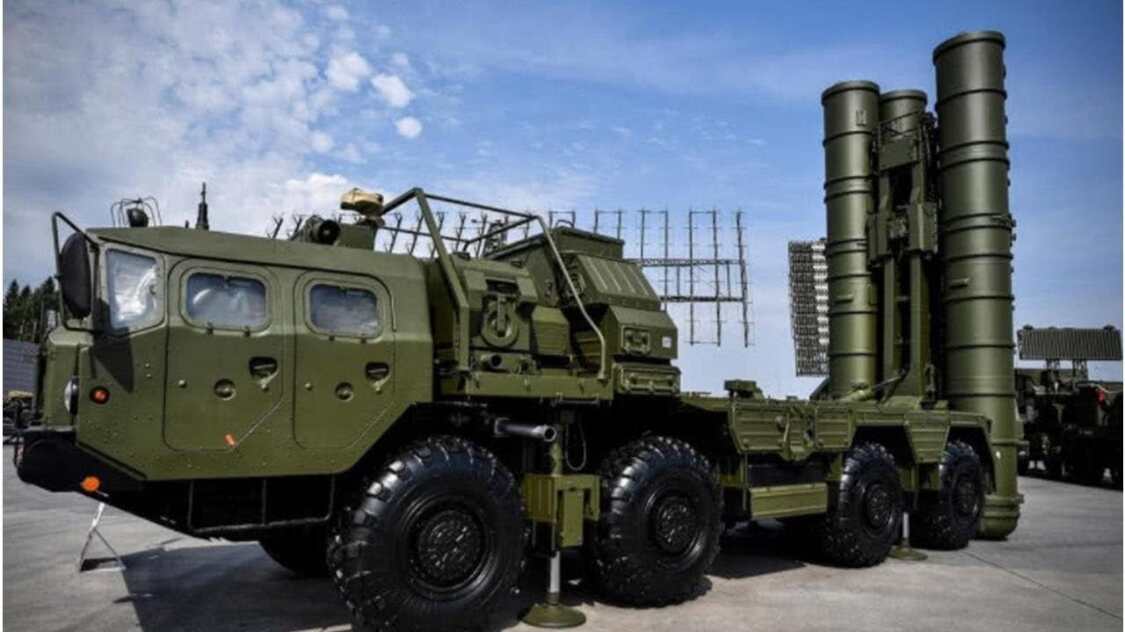Defending posture

Uncertainty looms whether the Biden administration will impose sanctions on India over its purchase of the S-400 missile system from Russia. For India, the dilemma of choosing between its traditional supplier of arms and ammunition i.e., Russia, and its emerging powerful ally, the United States, continues. But more prominent than this dilemma, appears to be the urge to ensure national security against the dual challenge along the borders with China and Pakistan. It is perhaps this urge that convinced the Indian government to sign the deal for purchasing S-400 batteries from Russia in October 2018 — despite the clear enunciation from the Trump administration of the warning of imposition of CAATSA sanctions. Countering America's Adversaries Through Sanctions Act (or CAATSA) is a 2017 American law that gives the US president discretionary power to unilaterally impose sanctions against countries which he considers to be having a deal with US' designated adversaries — Russia, North Korea and Iran. The US has already imposed sanctions against one of its NATO allies — Turkey — for acquiring S-400 missile systems from Russia. While India opted to ignore the warnings rendered by the US administration, there is still a growing support for grant of CAATSA sanction waiver to India within the US Senate — by both prominent Republican and Democrat senators. Some of the Republican senators have even gone on to introduce an amendment to the National Defense Authorization Act FY2022 to put extra checks on the executive in the matters relating to imposition of sanctions against Quad members for buying Russian arms. Keeping 'America's national security interest' in mind, two prominent senators — Democrat Mark Warner and Republican John Cornyn — have directly urged the US president to not impose sanctions on India. Furthermore, the Biden administration has yet not come out clearly on the course of action it intends to take in this matter. So, why has India ignored the US' warnings and why is the US willing to grant India a favor by not imposing the sanctions? The possible answer to both the questions is — national interest. Foreign policies of each nation are governed by its very own national interests, and diplomatic friends are made on the basis of utility. One may argue, and rightly so, that abstracts like shared principles and values are the binding forces between nation allies, but tangible decisions are made largely on national interest considerations. India chose to ignore the US warning as it could possibly see the threat looming across its northern borders. While signing the deal with Russia, India was aware that it was buying one of the best surface-to-air missile systems in the world. The system is capable of launching air attacks in the range of 400 kilometers, which could penetrate deep beyond its northern frontiers. It is also known to be laced with early detection and warning systems capable of tracing hostile air-borne objects in the range of 600 kilometers. It is not tough to conceive that the missile system may go a long way in addressing some of the security issues we have been witnessing over the past few years. The support for a waiver to India within the US, and the silence of the Biden administration, stem from the fact that India has acquired a strategic position in the US' diplomatic equations. India is the only Quad country that shares a land boundary with America's prime adversary — China. It can ill-afford to have negative ties with India. The entire episode can also be seen through an arms race perspective. Russia's S-400 is a top-rated surface-to-air defense system. The US has similar defense systems but analysts place the S-400 on a higher pedestal. In fact, the US had also offered to India its Aegis and Patriot systems, apart from its renowned THAAD system, but India had to go ahead with its own calculations. It remains to be seen if the US imposes CAATSA sanctions on India or not. But it can safely be said that India opted for the right path by not bending before any indirect or direct influences by a foreign nation into its national interest matters. In fact, unilateral sanctions like CAATSA must lose relevance in the future. International politics around defense is a power game that India has learnt well to play.



